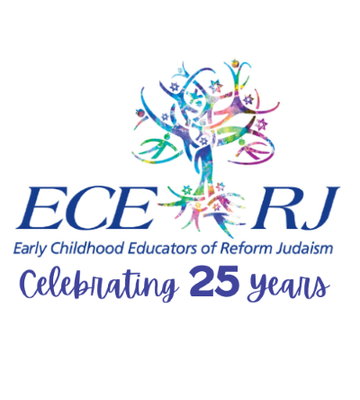2017 Back-to-School
A Pivotal Year for Welcoming Students & Families
By Cindy Terebush, Early Childhood Consultant
Author of “Teach the Whole Preschooler: Strategies for Nurturing Developing Minds”

This year, however, will be different. We are not living during typical times. Unsettling world events fill our television screens, newspapers and social media. Emotions and opinions are more intense than usual. This does not go unnoticed by young children. They know when there is upset around them. They may not be able to express it but they are changed by it. Toxic stress impacts their brain development. Young children need positive social supports in the early childhood years so that their brains will be wired to navigate the challenges of life that face them in the years ahead. They and their families need their Jewish community to be a place where they can find respite and where their need for safety, security and emotional equilibrium can be met.
This year is a pivotal year. It is not business as usual for anyone and especially not Reform Jewish early childhood settings. Your connection to young families – often their first connection to a Jewish community - always matters but this year, it is even more essential that young families feel the value of being part of a Jewish community. In today’s world of extremes, Jewish early childhood settings need to be extreme too – they need to be extremely kind, non-judgmental, open minded and understanding.
How can those of us who work with young children and their families raise the level of our interactions to meet the challenges of our times? We can meet more hate with more love if we are intentional, reflective and we own the power we have to make a positive difference.
As you prepare for the new school year, take out a piece of paper and write your intentions. When we write ideas down, they become real. As you think about what the children and families need this year, remember:
- Separation anxiety is normal for both students and parents. Change is hard and starting a new school year is a major shift. Think about how you feel in new situations when you are basically surrounded by strangers. We take young children, bring them into a room with virtual strangers and say, “Have fun!” We ask parents to hand over a piece of their heart and simply trust. Be reassuring to both the children and their families. There will be no judgment and no unrealistic expectations. There will only be help, support and respect for who they are today.
- You are the role model for kindness and respect. We don’t teach socialization skills and values just from reading books and giving instructions. We teach it by living it. To be kind and respectful, we must find the gift in each of our students and help them to shine. We have to demonstrate respect through our interactions with everyone we encounter. We have to avoid creating the scapegoat in our classes by saying the same name over and over from across a crowded room. We have to teach children not to gossip about each other by avoiding gossip. We have to be the goal – a kinder, more respectful society.
- You don’t know the story of a family from the snippets that you see of their lives. Our brains crave completion so when we don’t know a story, we make it up. It’s human nature to fill in the blanks. I took a class during which we were asked to interpret the actions of children. We were amazed by the number of times we stated something and the instructor stopped us by saying, “What evidence do you have?” We had none. We were adding motives and interpretations for which we really had no basis. Since that class, I have made it a practice to ask myself, “How do I know that?” Spend some time reflecting on your thoughts at the end of each day and really consider how much evidence you have to support your perceptions. Assume nothing.
- A child’s first Jewish experiences will lay a foundation for their relationship with Judaism for the years ahead. We tell parents that early learning experiences need to be developmentally appropriate and engaging in part because we want children to see learning as worthwhile and fun. If young children are turned off by being forced to write before they are ready or to sit for longer than they innately can, we know that they will see learning as a chore for many years to come. Their relationship with a learning environment will be tainted. The same is true for their relationship with Judaism. They will need a foundation of love for their Judaism and their Jewish community so that perhaps, they can come together to create a world with more acceptance and tolerance for people of all faiths and cultures.
The URJ has given us the charge to #BeTheLightForJustice. Justice begins in our homes, our synagogues and our classrooms. Ignite that flame with your smile, your sincerity, your concrete intentions and your heartfelt, “Welcome!”

